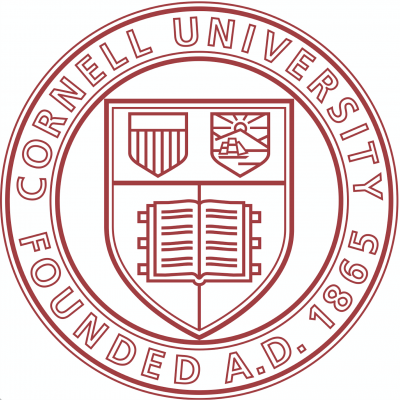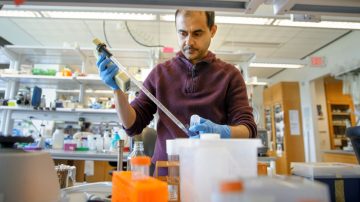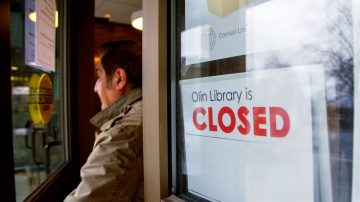Highlights from Announcements 3/23/20

Graduate School COVID-19 Update-3/23/20
Dear Graduate School Community,
I am writing with updates and additional information. This is a difficult time for everyone. Many of us are worried and uncertain about what might come next. We are all trying to adjust our lives and set up remote workstations while we safeguard our health and the wellbeing of those around us. We appreciate the patience, flexibility, and resilience that graduate students, faculty, staff, and graduate fields are exhibiting.
We know that working remotely is complicated and involves navigating daily with those sharing our work-from-home situation, whether that includes roommates, partners, children, parents, other relatives, or friends. Everyone is under a great deal of stress and operating under conditions of uncertainty and rapid change. Please take care of yourself and stay (virtually) connected with those from whom you draw support.
The situation continues to be dynamic. Changes in the last several days include postponement of Cornell’s Commencement, extension of the academic year, and additional campus access restrictions based on NY Governor Cuomo’s recent order that non-essential New York state businesses must move to all-remote work. Below is a recap of recent updates and frequent questions.
Academic Calendar
Due to the pause in classes as the university moves to remote instruction, the academic calendar (for the Ithaca campus, including undergraduate and graduate programs; some professional degree programs and Cornell Tech have program-specific calendars) has changed to the following:
- First day of online instruction: Monday, April 6
- Last day of drop/grade change: Tuesday, April 21
- Last day of online instruction: Tuesday, May 12
- Exam period: May 16-May 23
Assistantships and Stipends
Graduate assistantship and fellowship stipends will be maintained, as communicated by the Provost on March 15, and by the Graduate School on March 13. The salaries and stipends of staff, students and postdocs will continue on grants or other sources as usual. (See COVID-19 Update: Conduct of Research from 3/15/20 and the FAQs from the Research Division for more information.) Work on your academic, research, scholarship, and teaching responsibilities remotely, and stay in touch with your faculty advisor/supervisor to gain their guidance on how to plan your activities over the coming weeks to be most productive.
Faculty supervisors and graduate students should remember that University Policy 1.3 is still in effect, with the hours/week limits on assistantship duties as required in that policy. (See Additional Guidance for Faculty from 3/13/20.) Cornell’s Research Division emphasizes: “It is important to remember that under no circumstances should graduate students or postdocs be required to go into the laboratory or perform any essential research tasks against their will. Students with concerns should contact their Director of Graduate Studies, Department Chair, or the Dean of the Graduate School.”
To take care of your physical health, follow Cornell Health advice. Please let your supervisor know if you become ill and need to have time to get well, including if you are directed by a primary care physician, health department, or other health professional to self-quarantine or isolate, and you are temporarily not able to conduct activities associated with your academic progress, or to conduct duties associated with your assistantship. Graduate students are not required to use vacation time available to them under University Policy 1.3 to cover time away because of illness. Graduate students on fellowships and assistantships who experience illness and need time to get well, including if you are directed by a health professional to self-quarantine or isolate because of pandemic-related issues, will continue to receive their assistantships. This includes assistantships funded by sponsored awards. The approval process normally required by University Policy 1.3 (p.14) is not required when a graduate student has been directed to quarantine or isolate by an authorized health professional. Take the time you need to recover and be well, and to continue to practice social distancing (or isolation/quarantine) from others.
Recent Communications and FAQs
With national, state, and local restrictions changing frequently, the university is working hard to keep students updated. Policies have evolved considerably over the past week. I encourage you to review Cornell statements and news, especially the messages for faculty, graduate students, and for teaching and learning. All COVID-19 University statements are posted.
-
- University COVID-19 Updates, Statements, Resources, and FAQs – explore the tabs across the top for various details
- Messages for the University, for Students, and for Faculty – scroll down to see messages sent to these various populations
- Resources on Teaching & Learning FAQs for Faculty and for Students – see the links for information specific to faculty and for students.
- Graduate School updates, resources, and FAQs
- Cornell Research Division updates and guidance
- Center for Teaching Innovation resources on remote teaching
The Graduate School resource page includes links to virtual wellness opportunities, public health information, Cornell COVID-19 websites, tips on working remotely, and much more. These are updated frequently.
Getting Support
Graduate School staff are available with extended hours to help students in different time zones and on varying schedules navigate rapidly changing requirements. All offices, including our administrative and deans offices, are available by phone or email. Several offices have extended their hours, including Student Services, Student Life, and Inclusion and Student Engagement to meet varying graduate student needs and living locations. See Updated Graduate School Hours for more complete information.
Cornell Health remains open, but is deferring non-urgent visits and expanding their telehealth capabilities. Please visit their website for up-to-date information about making appointments, picking up prescriptions, and talking with or seeing healthcare professionals.
Moving Forward
As we acclimate to remote workspaces, staying connected (virtually) to your faculty, colleagues, and peers, as well as friends, neighbors, and family will become increasingly important. We are all in this together.
Reach out and share a virtual lunch, schedule meetings, and check-in with the people in your life. Video call and conferencing over Facetime, Zoom, and with other technologies can help you feel more connected and help you keep motived and on task with your academic progress. Already, some students have set up virtual writing groups, virtual lab meetings, and virtual journal clubs.
The Graduate School is collecting your ideas for staying connected and being productive. I invite you to share ideas for establishing community and being productive while working remotely. We’ll collect these and post to our website and in our weekly Announcements.
I thank our graduate community – staff, faculty, and students – for working together and rising to meet these difficult challenges. If you have questions, please contact us at gradschooldeans@cornell.edu.
Best wishes, and stay well!
Barb
Barbara A. Knuth
Dean of the Graduate School
COVID-19 Updates, FAQs, and Resources
- Latest University COVID-19 Updates
- Graduate School COVID-19 Updates
- Graduate School COVID-19 Updated Hours
- Graduate School COVID-19 FAQs
- Graduate School COVID-19 Resources
For information on the following and more, visit the Graduate School COVID-19 Resources page:
- Changes to exam requirements
- Professional development opportunities
- Remote teaching, learning, and working tips
- Updates to campus parking and TCAT service
- Free virtual fitness classes and meditation services
Stay Informed
Where can the public get information about COVID-19 in Tompkins County?
- Call 211 for information, including questions about food, transportation, events and gatherings, cancellations, and other human service needs.
- Call the NYS COVID-19 Hotline at 1-888-364-3065, the wait time is short and they have up-to-date information and can walk you through next steps.
- TCHD will continue to send out public updates, check our website.
- Check Facebook @TompkinsPublicHealth and Twitter @TompkinsHealth.
- Go to the TCHD website for up-to-date information.
- Get answers to frequently asked questions on the TCHD website.
If you develop symptoms of illness including fever, cough, or trouble breathing, call your health care provider before you go to the office. In the event of an emergency, call 911.
Stay informed. Get updated information about COVID-19 at:
- New York State Department of Health
- Centers for Disease Control and Prevention
- World Health Organization
- Visit the CDC’s Traveler’s Health webpage for the latest travel health notices
Cornell Tech Students
We know some of this information is only relevant to Ithaca based students. For other information, please refer to the Cornell Tech weekly Student Services Newsletter sent on Wednesdays and check the Cornell Tech COVID-19 Updates page.
Research Leadership Lends Helping Hand

In the midst of the coronavirus outbreak, making important decisions regarding the health and well-being of the Cornell community is no small task. But that’s exactly what university leaders have faced.
On March 15, Provost Michael I. Kotlikoff and Vice Provost for Research Emmanuel Giannelis announced the difficult decision to suspend noncritical research on campus.
Read the Chronicle story and Dean Knuth’s comments on graduate student work
Library Expands Remote Services for Cornell Community

Amid the disruption caused by the COVID-19 pandemic, Cornell University Library staff are working to support students, researchers, faculty, and the campus community. Library users will continue to have access to library materials and expertise through a range of virtual and other services, such as a guide for faculty members who are ramping up for online learning.
(Virtual) Things to Do, March 20-27

During this challenging time of social distancing and a university interrupted by the ongoing coronavirus (COVID-19) outbreak, the Chronicle is offering a virtual Things to Do selection of events and ideas that offer a variety of opportunities for engaging with Cornell resources and programming. Please see the University Events Calendar or individual event listings for updates and cancellations.
My Lab Group Met to Chart Our Response to COVID-19. Here’s What We Learned
By Jay J. Van Bevel, associate professor of psychology and neural sciences at NYU
The COVID-19 pandemic has inspired a wave of panic and distress as universities close, students are dislocated, careers are disrupted, and professors scramble to cover their teaching and research obligations. The pressure is compounded by more personal concerns-feelings of social isolation, coping with family and friends who are seriously ill or at-risk, and struggling to juggle child care during school closures. I’m a professor in New York City–a COVID-19 hotspot–and I’ve spent much of the past week sorting through how I should respond.
Read the full Letter to Young Scientists
Policy Spotlight: Academic Integrity
Being honest is the key to academic integrity. All Cornell students are expected to uphold academic integrity in all aspects of research and scholarship, including formal coursework as well as university relationships and interactions. If a student, staff member, or faculty member report a suspected violation, a hearing board is convened to determine if the incident was a violation and, if so, determine an appropriate penalty.
Examples of academic integrity violations:
- Plagiarism
- Cheating
- Unauthorized collaboration
- Misrepresenting yourself
Learn more about academic integrity
Kudos!
Graduate Students’ New Framework Published in Physical Review Letters
A team of researchers including Eli Gerber, a graduate student in applied physics, developed a new theoretical framework (mismatched interface theory or “MINT”) for studying mismatched atomic interfaces and used it to make an exciting prediction which was then supported by experiment. Their work was recently published in Physical Review Letters as the Editors’ Suggestion.
Doctoral Student Awarded NSF Dissertation Improvement Grant
Erin McCauley, a doctoral student in sociology, was awarded a National Science Foundation Dissertation Improvement Grant.

